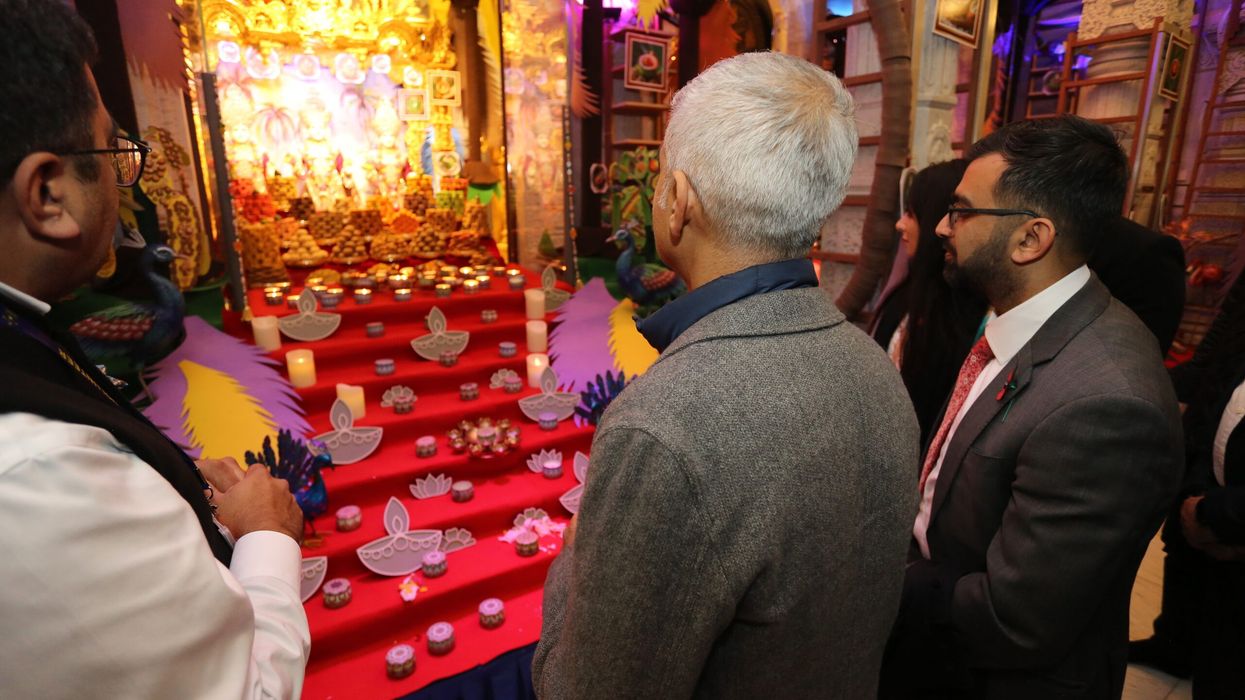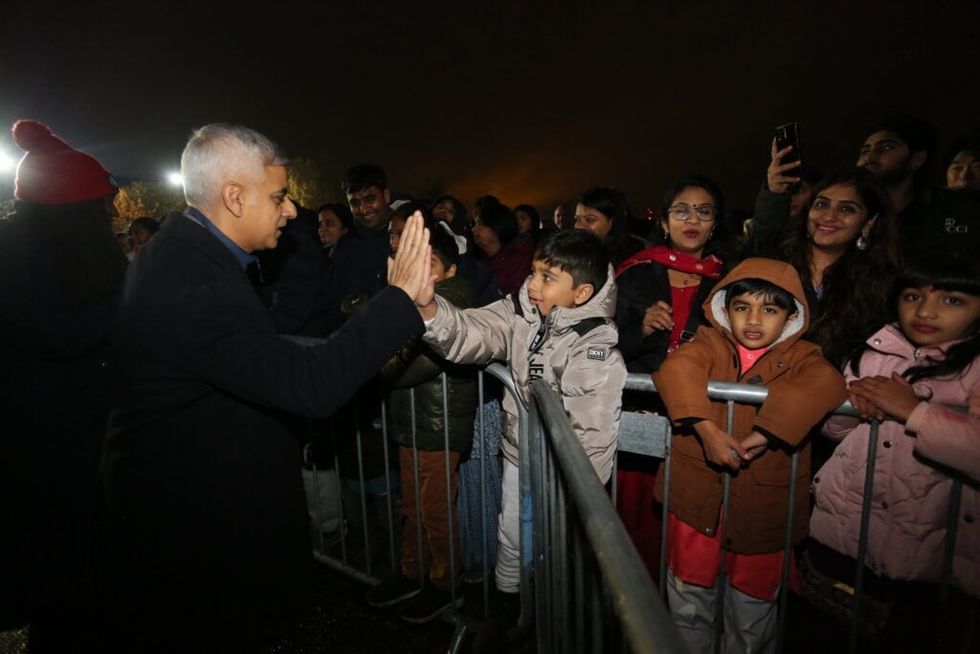LONDON mayor Sadiq Khan celebrated Diwali at Neasden Temple with thousands of others from the local community.
Khan inaugurated the fireworks display on Sunday (12) evening, which brought a fusion of light and sound into the night skies, a statement said.
Inspired by the selfless service and charity of His Holiness Mahant Swami Maharaj, the Temple decided to collaborate with The Felix Project. This partnership aimed to aid in providing fresh fruit and vegetables to local food banks. This initiative comes at a crucial time when the cost-of-living crisis is affecting numerous families, the statement added.
“I am in awe of what the Neasden Temple volunteers do. The most joyous thing about your work is not only serving those who are Hindu but everybody – the youth work, the work during the Pandemic, the work to help the elderly, but it is particularly important to help those struggling because of the cost-of-living crisis.
"It makes me really happy to see the partnership between Neasden Temple and The Felix Project. Making sure others benefit from this generosity makes me incredibly proud.”
The Temple also paid tribute to heroes from the armed forces who gave their lives in service to their country during conflicts. This Remembrance Sunday assembly was attended by several people, including members of the British Army, Western Front Association, Royal British Legion, and representatives from diverse faith communities.
Chandni Depala, a volunteer at the Temple, said, “The celebrations at Neasden Temple provided an example of how the festival’s values can transcend boundaries, uniting communities and inspiring acts of kindness and charity. During uncertainty, the message of Diwali, representing light, goodness, and unity, shines even brighter, fostering a sense of hope and harmony in a world that needs it more than ever.”






